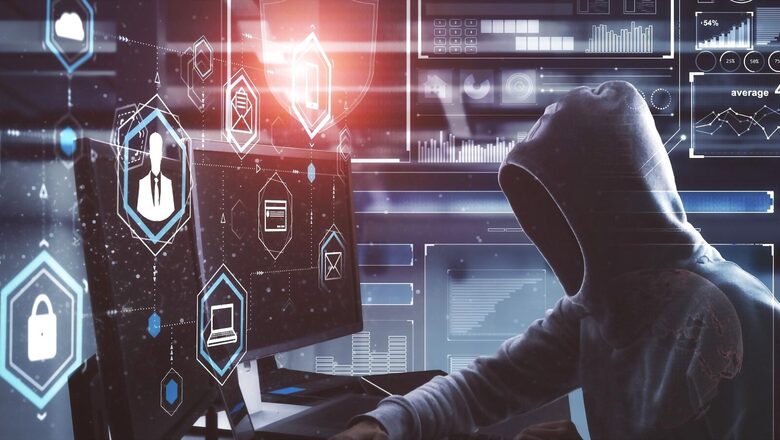
views
With digital advancements in the country and more dependency on online processes, scammers have also upgraded themselves by adopting smarter techniques. While security experts have highlighted that cybercriminals will be more sophisticated with time, staying vigilant could save people from falling into the trap of a new trend called the Jamtara Model.
A Twitter user, Geetika Rustagi, recently shared her story of how she was targeted by scammers. In a long thread, she explained how a group of people coordinated to try and scam her over a WhatsApp call pretending to be FedEx customer care operators as well as Mumbai police officials.
It is not uncommon to find a pattern in such scam calls. First, the scammers pretend to be extremely polite as well as helpful and then try to scare the victim if he/she does not sound convinced enough. After these, if the victim still avoids sharing details like OTP or denies payment, they use their ultimate weapon, which is threatening the person with the intention that they panic and ultimately do what the scammers have asked for.
JANHIT MEIN JAARI – HOW I ALMOST GOT SCAMMED – #Jamtara Real Life Incident. #threadstory Today morning at around 09:45 AM, I got a call from 964675397 'FedEx' customer care saying a package attached to my Aadhar ID had been flagged because it contained illegal items. (1/n)
— Geetika Rustagi (@geetiga) January 10, 2023
Scammers who targeted Rustagi used the same pattern. According to her Twitter thread, when she declined to make any payment, the scammer, who was talking to her on the phone, threatened to freeze her bank accounts for 2-3 years. He told her to pay or come in person to the Mumbai police department. When Rustagi said she would go to Mumbai, the scammer ended the call.
This could be seen as a happy ending for Rustagi but not for all because scammers, who can spend hours to fulfil their illegal intentions, would have already started the search for their next target immediately after ending the call.
The Jamtara Model
Rustagi’s case shows that the Jamtara Model is no longer confined to being a Netflix series.
Well-known cybersecurity expert and Supreme Court lawyer Dr Pavan Duggal had discussed the model when Covid-19 hit India and cybercriminals used the modus operandi as the entire country was embracing digital options.
“We witnessed the emergence of the Jamtara Model which is when a community gets together and decides that everyone in the community has to do be part of a cybercrime. Why? Because that’s the best for economic prosperity and growth,” he said.
According to him, this particular model was seen to be replicated in big cities, small towns, as well as in rural areas, highlighting the depth of the issue and its possible victims.
The Aadhaar Fear
Rustagi, in her Twitter thread, stated: “I am now worried that the scammers have my Aadhar details and are likely to misuse them.”
According to the Unique Identification Authority of India: “Just by knowing your Aadhaar number, no one can harm you. It’s just like any other identity document such as passport, voter ID, PAN card, ration card, driving license, etc., that you have been using freely for decades with service providers.”
It was said that the Aadhaar card must be verified either physically or electronically through authentication or offline verification, or in any other manner specified. Fingerprint, iris scan, OTP authentication, QR code, and other methods of verification are used. So, as a result, impersonating a person is nearly impossible.
But experts advise people to use the locked or masked Aadhaar details while sharing with others which can be downloaded from the UIDAI portal.
According to Dr Duggal: “It is the Aadhaar number with which your biometrics are connected. Once your Aadhaar number and biometrics are compromised, your digital identity is compromised for lifetime.”
He advised that wherever possible, one must not use Aadhaar and the Supreme Court also states that Aadhaar is not mandatory for identification. Additionally, he said it would be a much better idea to lock the Aadhaar number.
Duggal also said just because Aadhaar, which is linked to almost everything, is given by the government, it doesn’t mean it is safe as every year, there are at least 50-60 FIRs related to Aadhaar.
A spokesperson from InstaSafe also told News18: “People should always provide masked Aadhaar card copy for digital verification and lock their biometric authentication so that it can’t be accessed and misused. If accessed, scammers are provided with detailed information of an individual (for instance: phone no. email id and address), making it easy for them to hack into devices through spamming and phishing.”
In terms of financial fraud, Duggal advised people to submit the required documents with the bank or a complaint within 72 hours instead of calling customer care. He said: “If you do that, you can follow up with the bank and the bank has no choice apart from giving you the money back under the RBI notification.”
Read all the Latest India News here

















Comments
0 comment